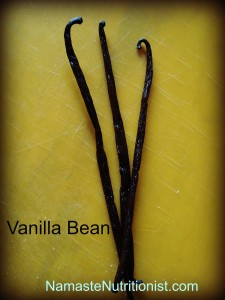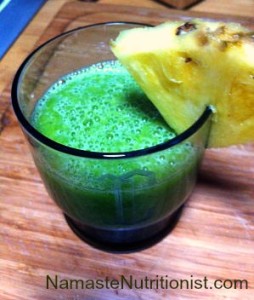The foods most susceptible to counterfeit (fakery, fraudulence, whatever you want to call it) include honey, olive oil, milk, heirloom produce, and baby formula.
You can find out more in this article and podcast on food fraud.
I revealed why food fraud is a widespread problem in developed countries, making both you and me easy targets, in this article & podcast. Now, let me highlight for you the more marginalized items.
Spices, alcohol and juice also fall into the “highly susceptible” category for counterfeiting. Read on to reduce your chances of being caught as a victim.
1. Spices:
These represent an easy opportunity for fraud. Spices are an expensive good purchased in small quantities. It’s unlikely that someone using the spice in their small doses will notice that something is off. Saffron, vanilla extract, turmeric, star anise, paprika and chili powder are the top spices prone to fraud.
Some are simply a waste of money, while others are hazardous trades. Shoppers buying paprika may be getting the flavorless leftovers of spices that have already been processed for extracts – and I’ve definitely encountered this. For years, I was convinced that paprika was only used decoratively because I’d never tasted paprika with any flavor!
But more dangerous is the Sudan red dye that is sometimes sometimes used to color paprika, chili powders, and curries. Sudan red dye is a known carcinogen. It’s banned for use in foods, but counterfeiters never mind the laws. Can I get a collective “WTH?!”
This makes me think twice about my favorite restaurants who dish up richly colored, aromatic dishes. Do they take care to avoid food fraud?
According to The Salt, of National Public Radio (NPR.org),
Price is clearly a driver of deception. Saffron is the world’s most expensive spice, and efforts to fake it date back to the ancient Greeks. The USP database lists 109 phony saffron substitutes, including marigold flowers, corn silk, gypsum, chalk and strands of cotton or plastic thread. – NPR.org
Solution: Exercise caution when purchasing from markets or bulk bins without knowing the spice’s origin. Purchase from trusted sources. And whenever possible, grow your own herbs or spices.
2. Fruit Juice:
Expensive juices are apparently easy to find it easy to dilute without a detectable change in taste or consistency, according to experts. Orange juice and apple juice are the most susceptible. Consumers buying one of those common juices might get more water for their money, while an expensive one like pomegranate may be cut with apple juice.
Take care when purchasing juices labeled “super-fruit”, and read the labels carefully. It takes time to build up supply of a popular hot fruit, so those products are vulnerable.
Solution: I think there is a silver lining to the fruit juice adulteration risk. I’m not a big fan of fruit juice, as it’s easy to over-consume calories and reap relatively little nutritional merit. To minimize your risk, I suggest eating whole fruit. It’s hard to get tricked this way. Plus, you’ll get more fiber and you’ll eat less, which means your waistline probably won’t expand.
3. Alcohol:
According to the New York Times: more than 20 people died last year after drinking counterfeit liquor. Last year, a New York wine dealer was arrested for allegedly trying to sell rare — but counterfeit — wines for $1.3 million. Most counterfeit wines are just a cheaper vintage and a bad bargain, but adulterated spirits are potentially more dangerous. Counterfeit vodkas have made headlines for their tasty contaminants, which includes anti-freeze and other dangerous chemicals.
Counterfeiters are likely to focus most of their attention on the packaging, so consumers should keep an eye out for logos and bottles that don’t look quite right. Look for misspellings that might give it away.
Solutions:
Avoiding fakes comes down largely to being an informed shopper and buying from trustworthy sources. Branded products tend to have more supply-chain safeguards, especially because their brand’s reputation is on the line if they sell a fake.
More solutions:
- Buy local from food producers you personally know and trust. These products with shorter supply chains tend to be local or minimally processed.
- Process more of your own food by growing, cooking, and/or fermenting more from home. I know you can’t do everything. But preparing foods from home gives you a lot more control.
- Eat whole fruit, or juice your own.
What to do if you suspect food fraud:
If you have any suspicious about food being offered for sale, for example, if the meat being sold is unusually cheap and you have concerns about where meat has come from, please inquire with the store manager.
If the taste of an item seems off, or you get sick, it’s worth alerting both the store and the local public health department.
If you work someplace where food fraud is occurring in the UK:
If you work in the food industry and you are blowing the whistle in the public interest on wrongdoing where you work.
email: foodfraud@foodstandards.gsi.gov.uk
leave a message on the food fraud hotline on 020 7276 8527
Links:
Food Fraud Database (USA)
Food Standards Agency (UK)
Leave a comment. I’d love to know your reaction!
Podcast: Play in new window | Download



One response to “Food Fraud in Spices, Alcohol & Juice”
I am truly grateful to the owner of this web site
who has shared this fantastic article at here.